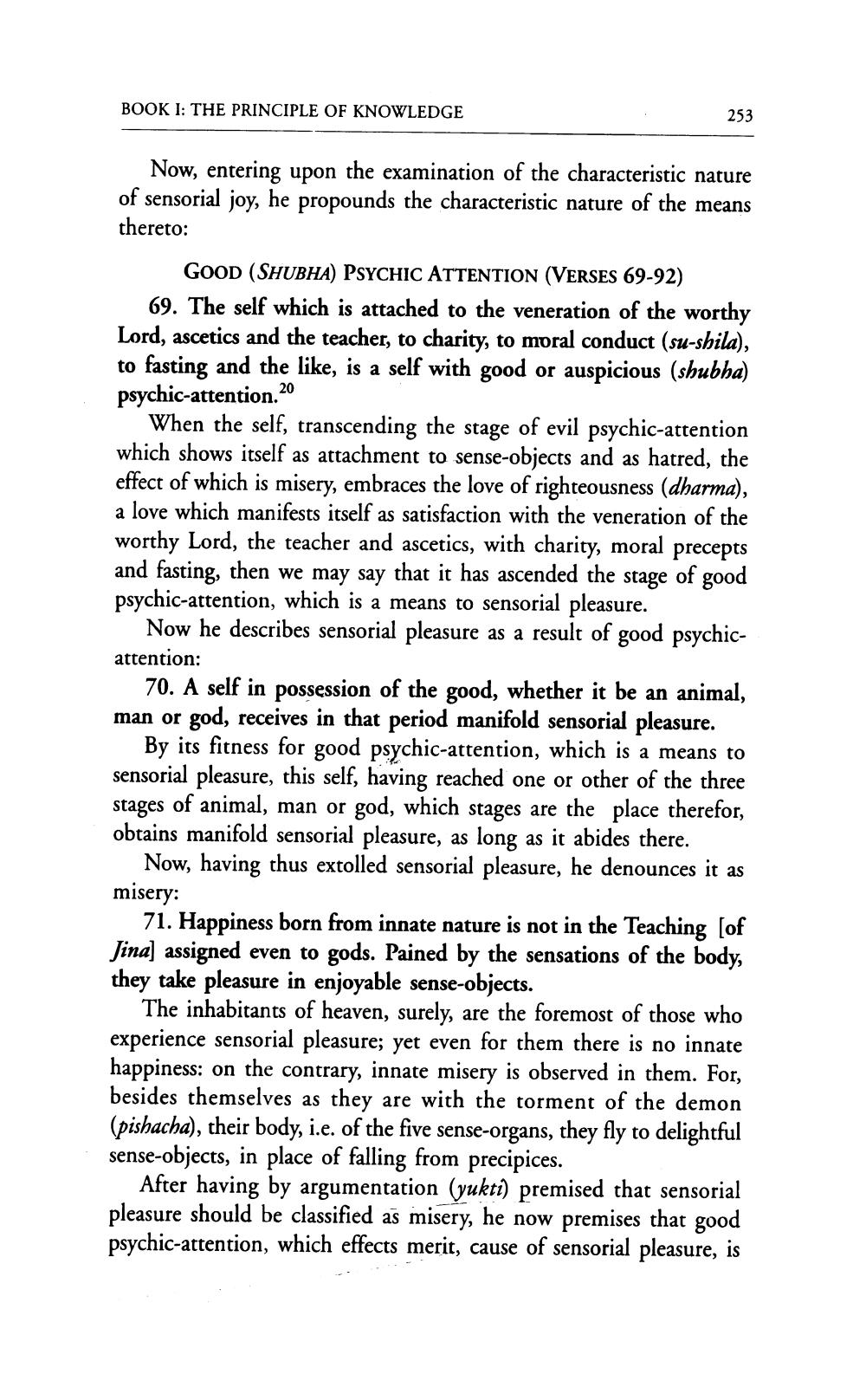________________
BOOK I: THE PRINCIPLE OF KNOWLEDGE
253
Now, entering upon the examination of the characteristic nature of sensorial joy, he propounds the characteristic nature of the means thereto:
GOOD (SHUBHA) PSYCHIC ATTENTION (VERSES 69-92) 69. The self which is attached to the veneration of the worthy Lord, ascetics and the teacher, to charity, to mural conduct (su-shila), to fasting and the like, is a self with good or auspicious (shubha) psychic-attention. 20
When the self, transcending the stage of evil psychic-attention which shows itself as attachment to sense-objects and as hatred, the effect of which is misery, embraces the love of righteousness (dharma), a love which manifests itself as satisfaction with the veneration of the worthy Lord, the teacher and ascetics, with charity, moral precepts and fasting, then we may say that it has ascended the stage of good psychic-attention, which is a means to sensorial pleasure.
Now he describes sensorial pleasure as a result of good psychicattention:
70. A self in possession of the good, whether it be an animal, man or god, receives in that period manifold sensorial pleasure.
By its fitness for good psychic-attention, which is a means to sensorial pleasure, this self, having reached one or other of the three stages of animal, man or god, which stages are the place therefor, obtains manifold sensorial pleasure, as long as it abides there.
Now, having thus extolled sensorial pleasure, he denounces it as misery:
71. Happiness born from innate nature is not in the Teaching (of Jina] assigned even to gods. Pained by the sensations of the body, they take pleasure in enjoyable sense-objects.
The inhabitants of heaven, surely, are the foremost of those who experience sensorial pleasure; yet even for them there is no innate happiness: on the contrary, innate misery is observed in them. For, besides themselves as they are with the torment of the demon (pishacha), their body, i.e. of the five sense-organs, they fly to delightful sense-objects, in place of falling from precipices.
After having by argumentation (yukti) premised that sensorial pleasure should be classified as misery, he now premises that good psychic-attention, which effects merit, cause of sensorial pleasure, is




